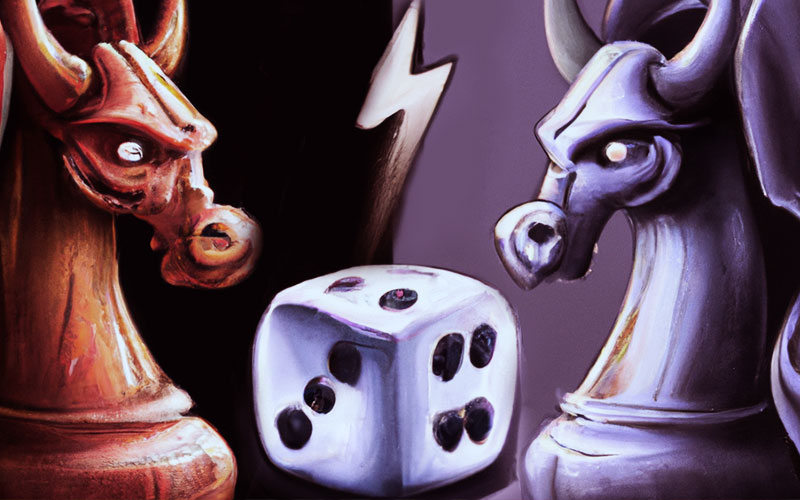
Backgammon and chess, two venerable board games with ancient origins, have captivated players for centuries. Their historical significance, dedicated followings, and intricate gameplay make them perennial favorites. The ongoing debate over which game reigns supreme has yet to yield a definitive answer. In this article, we'll delve into a comprehensive comparison of key facets in both backgammon and chess, culminating in a personal verdict on the preferred game.
Unveiling the Origins
Dating back millennia, backgammon and chess each boast a rich heritage. Emerging around 3000 BC in Mesopotamia (modern-day Iraq), backgammon claims the mantle of one of the world's oldest games. Meanwhile, chess likely originated in India during the 6th century AD, although its roots might extend further to China or Persia. Both games traversed the globe through trade and cultural exchange, evolving over time into their present incarnations.
A Duel of Rules
Backgammon and chess present distinct rules and objectives. Backgammon combines elements of luck and skill as players maneuver their 15 checkers across a board of 24 triangular points based on dice rolls. The objective involves relocating all checkers to the home board, followed by bearing them off before the opponent. Chess, a skill-driven pursuit, involves moving 16 diverse pieces (pawns, knights, bishops, rooks, queens, and kings) across a 64-square board, each adhering to specific movement rules. Triumph hinges on checkmating the adversary's king or forcing surrender.
Mastering Strategy
The strategic depth of backgammon and chess manifests in distinct ways. Backgammon demands shrewd probability assessment and risk management, aligning dice outcomes with optimal moves. Outwitting the opponent entails anticipating and countering their actions, underpinned by tactics like hitting, blocking, and doubling. In contrast, chess hinges on logical deduction and calculated analysis, with players discerning optimal moves, pondering multiple steps ahead, and discerning ramifications. The game's stages encompass opening, middlegame, and endgame, underscored by tactical maneuvers such as forks, pins, and skewers.
The Art of Challenge
Both games offer formidable learning curves, albeit with differing characteristics. Backgammon balances ease of acquisition with intricate mastery. While its rules are straightforward, the multifaceted strategy demands extensive practice, refining intuitive decision-making and pattern recognition. Chess, more complex to grasp, leads to even greater mastery intricacies. In-depth study is essential to comprehend principles, techniques, opening theories, and endgame tactics. Absent any randomness, chess exemplifies elegance, though its demanding nature can be formidable.
Engaging Enjoyment
The realms of enjoyment in backgammon and chess encompass diverse dimensions. Backgammon's allure lies in its rapid dynamism, facilitating brisk games of 15 minutes or less, enhanced by the unpredictability of dice rolls. Emotional resonance traverses joy, frustration, surprise, and more. Social interaction is integral, fostering banter, camaraderie, and friendly competition. Online and offline play ensures widespread accessibility. On the other hand, chess's appeal rests on its challenging and gratifying nature, facilitating longer games brimming with complex maneuvers. The emotional spectrum spans pride, relief, admiration, and respect. Chess's cultural significance encompasses history, legends, players, tournaments, and artistic influences.
Deciphering the Verdict
Both backgammon and chess offer distinctive merits, shaped by numerous shared and disparate attributes. Determining superiority hinges on personal preferences and inclinations. Personally, backgammon resonates with a preference for dice-fueled excitement, interactive engagement, and rules simplicity. However, profound respect and admiration for chess's depth and sophistication coexist. Both pursuits merit exploration, potentially revealing a newfound passion or pastime that enriches life's tapestry.
In the timeless contest between backgammon and chess, the true victor is subjective, encapsulating a realm of possibilities.